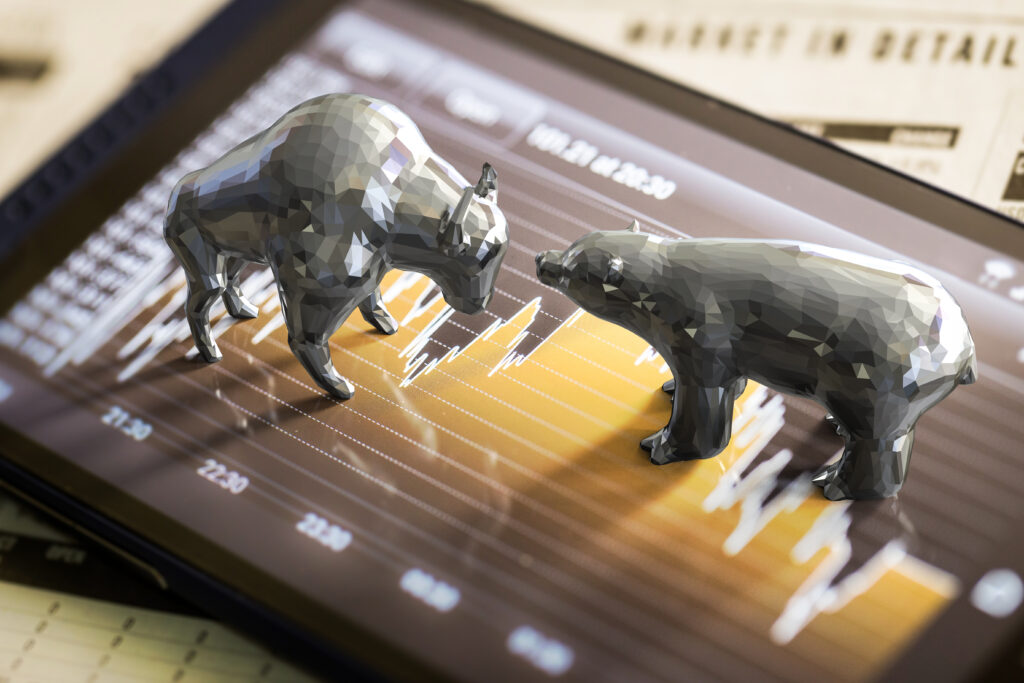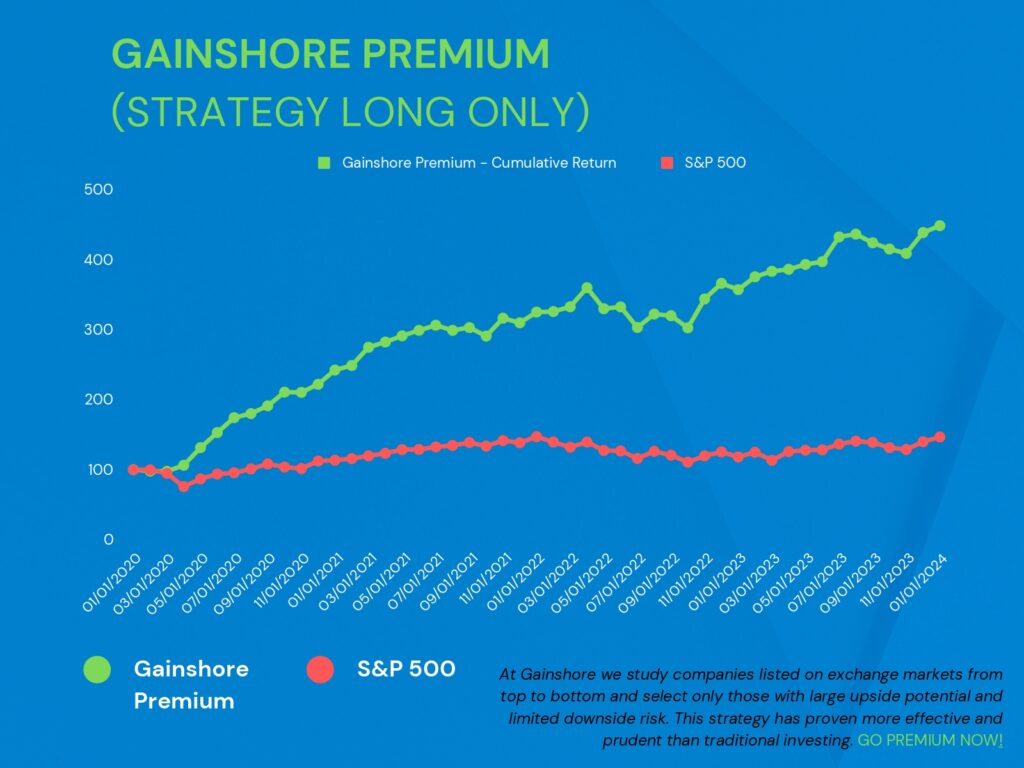CFDs Meaning
CFDs refer to Contract for Difference: a derivative instrument whose value accurately mirrors the price quotation of an underlying asset. Unlike real investments, CFDs are nothing more than agreements between an investor and a broker, or in general, a financial institution, to enter into a cash-settled transaction whose final worth depends on the difference of value between the moment in which the contract opens and the moment in which it closes.
A CFD contract, therefore, involves two operations: the first creates the position while the second, of the opposite sign, closes it. For example, if the initial transaction is a buy, the second that closes the first will be a sell and vice versa: a sell operation (short selling, read more on our FAQs) is locked by an opposite buy transaction. The difference in price between the transaction’s opening and closing represents the profit or loss.
Compared to real investments, CFDs have several advantages and disadvantages, but let’s take it easy.
TABLE OF CONTENTS
Most Popular Online CFDs Platforms
Why do around 80% of CFD traders lose money
CFD Trading
Contracts for difference allow you to use leverage and invest in various markets without actually owning what you buy. Therefore, by trading CFDs, you do not purchase or physically hold commodities, shares or currencies but enter into a contract with a broker whose CFDs reflect the price of the instruments you invest in.
If CFDs accurately mirror the price quotation of the underlying assets, then what are the differences compared to investing in regular stocks, currencies, commodities, etc.? What is the preferred alternative?
MAIN ADVANTAGES OF CFDs
LOW TRANSACTION COSTS
Trading using CFDs is usually cheaper than buying shares through a full-service broker; the spread usually represents the only cost to trade CFDs. The additional cost of holding a CFD position over a traditional purchase is only the cost of interest (see below). Conversely, a conventional share purchase may sometimes involve stamp duty (0.5% in the UK).
TRADE LONG OR SHORT WITH EQUAL EASE
Short selling empowers traders to profit from a falling market by taking advantage of price declines. Moreover, because the CFD trade is on the price movement of a financial asset – and does not require ownership – selling CFDs is as easy as buying, and the mechanics are identical.
ABILITY TO TRADE OUT-OF-HOURS
Many CFD providers offer extended hours, meaning you can trade some instruments even after the underlying exchange has closed for the day.
NO FIXED CONTRACT SIZE
You can trade the number of units equivalent to the amount you choose to invest, even less than one if the broker allows fractional shares. In contrast, traditional stockbrokers may require minimum lots that sometimes may be as large as 100 units, thus requiring substantial money disbursements for a single position.
MAIN SHORTFALLS OF CFDs
OVERNIGHT FEES
Positions held overnight are subject to overnight financing (this consists of a daily charge based on the contract size). As a result, trades held for extended lengths of time attract ever-increasing interest payments. The interest charged for positions held over large timeframes can significantly reduce the effectiveness of returns. In addition, overnight financing costs kick in daily for every trading day you maintain an open position, including weekends. These costs can quickly mount up if you intend to hold a position over weeks or months.
PASSIVE INTEREST
Even employing zero leverage, the contracts for difference traders must pay interest on the total transaction market exposure, irrespective of the margin posted on the transaction.
LACK OF TRANSFERABILITY
As CFDs are over-the-counter derivative products, it’s important to note that you don’t own the underlying share or instrument over which the CFD is quoted. Unfortunately, this also means you cannot transfer your position to a different CFD provider or stock broker; you can only deal with the CFD broker with whom you opened the transaction.
SOLIDITY
The lack of ownership makes CFDs less robust than real assets.
MILDER REGULATION
CFDs are instruments negotiated over the counter (OTC), which means that trades do not pass through regulated exchange markets.
SAFETY
CFD brokers usually offer lower investor protection against broker failure than stockbrokers. The current standard for CFDs is €20,000 versus €100,000 ($250,000 if registered with the American SIPC) guaranteed by banks and financial institutions on the liquidity held.
It should also be emphasized that holding real securities on banks and financial institutions is “immune” from a possible failure of the same bank, in which case the investments would be transferred to another financial institution, while the same cannot be said for CFDs. It is no coincidence that CFDs are prohibited in the United States.
CFD Example
Suppose you buy a CFD on a stock for €50. As soon as opened, the position will turn out slightly negative because of the spread, it is nothing but the difference between the price paid to buy a Stock (ASK) and the price received for the sale of the same Stock (BID). Let’s not confuse the bid-ask spread with the spread often mentioned in newspapers and television, which represents the difference in yield between a ten-year government bond and its equivalent, taken as a reference because it is considered safer and more stable, generally the German Bund.
To learn more about spreads, margin, and leverage, read further down the paragraph below, “Why 80% of people lose money with CFDs…”
So, with an asking price of €50 and a bid of €49.95, our position must earn 5 cents to break even.
Suppose our stock rallies to € 60 (BID) after a certain period, and we decide to close the position. Our net profit on the CFD will be €10 or 20% on the initial capital, minus any costs and commissions.
CFDs vs Spread Betting
Spread Betting has many similarities to CFDs: both are over-the-counter derivative products, can be leveraged, there is no underlying asset ownership, are cash-settled and allow to speculate on a multitude of financial instruments.
Spread Betting is more straightforward as the speculator bets whether that instrument or market will rise or fall.
The primary peculiarity of Spread Betting is that bets have fixed expiration dates, albeit the position can be closed before expiry. When the contract is completed, and profits or losses are realized, the gambler is either owed money or owes money to the trading company.
Another difference between Spread Bets and CFDs is that the former is not subject to capital gains tax, while CFDs are.
Online CFDs
The easiest way to invest in online CFDs is to open a trading platform (read our unbiased review of the best online investment platforms in the world), which generally takes a few minutes, and make a money transfer to your account.
It is recommended to try the platform demo first to simulate operations with non-real money whenever possible, especially if you are inexperienced.
Below you will find a list of the most popular CFD platforms:
Most Popular CFDs Platforms
CFD eToro
CFD Fineco
CFD Interactive Brokers
CFD Directa
CFD Investing
The categories of investment that can be traded through CFDs are many and virtually unlimited. The most popular include ETFs, market indices, commodities, cryptocurrencies, stocks, and forex.
Most Traded CFDs
CFD ETF
CFD FOREX
CFD S&P 500
CFD FTSE 100
CFD Silver
CFD Oil
CFD Gold
CFD Bitcoin
CFD Amazon
CFD USD/EUR
Why do CFD brokers gain (almost) all the time? / Why do around 80% of CFD traders lose money?
Suppose trading can be summarily defined as a zero-sum game. In that case, that is a situation in which a participant’s gain corresponds to a loss of the same amount as other participants and vice versa, one should expect half to win and the other half to lose. So why isn’t that with CFDs?
The speech is a little more complicated; theoretically, the broker should not act as a counterparty to the positions opened by its customers but limit itself to allowing different counterparties (customers) to buy and sell. While it doesn’t always work this way in practice, a CFD broker should hedge against uncovered net positions to avoid facing substantial potential losses.
The main reason CFD brokers make (almost) always money and (sometimes, only a few of them) don’t worry about having to face losses is the exact reason why most CFD traders lose money: overtrading and, most of all, IMPROPER USE OF LEVERAGE.
Leverage, Spreads and Margin
Trading with leverage means buying more than you could with the available budget. For example, if a company’s stock is traded at $100 and you own $1000, 10 is the maximum number of shares you can buy. A 5x leverage would buy 50 shares, totalling $5000, of which $1,000 of equity and the remaining $4,000 borrowed; a 100x leverage would buy 1000 shares and so on.
But who anticipates that capital in leveraged transactions? Generally, the investment platform with its money or through an intermediary bank.
Leverage causes you to lose money in at least three ways
1. Leveraged investments have costs in terms of passive interests (the amount you do not own is lent, and not for free!), which accumulate daily and can become quite expensive and erode profits in full. That’s why CFDs are not suitable for long-term investments.
2. A direct cost – the primary source of revenue for brokers allowing buyers and sellers to trade – is the spread between the price paid to buy a security (ASK price) and the price received for the sale of the same security (BID price).
The spread typically fluctuates between a few basis points to several hundred points, depending on the instrument’s liquidity and the broker’s efficiency. Operating with leverage will increase spread costs, as you will pay that cost as many times as much as the leverage used.
3. There is inherent volatility in markets where securities are constantly traded, and prices change frequently. Sometimes asset prices vary substantially, even over a short period of time. Leverage exposes x times more to price fluctuations; a 5% price movement on a 10x leverage position has a 50% impact.
Money, or equity, used for leveraged transactions is called margin; a position is automatically closed if all or only part of the margin is used.
As you can see in the example below, this could mean that a leveraged position can be forcibly closed even if that operation would have been – in retrospect – profitable, leading to a double negative result: lost profit opportunity and realized loss.

How do those few earn money repeatedly with trading?
Investing means putting some money aside to make it work and generate income. When you invest, you buy something you believe will increase in value over time.
Investing is a great way to help you achieve your financial goals, whatever they may be. Whether it’s retiring early, saving for a wedding, or just wanting some extra money in your pocket for the future.
Exceptional investment opportunities are extremely difficult to find and require a lot of work, time and skills.
For this reason, we have summarized what we have learned in more than 15 years of experience in synthetic guides suitable for beginners and experts.
Join Gainshore or write to info@gainshore.com to find out how to get them for free upon certain conditions.







